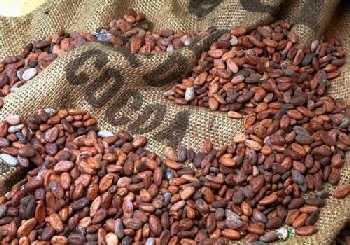The alternative aroma of Japanese charcoal-roasted coffee in bitterness
Many friends are leaving messages to know about charcoal-roasted coffee, which is a deeply roasted coffee with a very bitter taste in the island. We have all heard of how big the brains of islanders are. They are very good at creating their own things, and so is coffee!
Charcoal roasted coffee, also known as bitter charcoal roast in Japan, is a Japanese division of single coffee, refers to a taste, almost no acid, strong bitterness and glycol, the taste is relatively strong. Authentic charcoal-roasted coffee is generally deeply roasted with carbon fire (gas, carbon fire and infrared), the color is dark, the taste is fragrant and mellow, the taste does not feel sour, if condensed milk has a flavor.

How to make charcoal coffee
Authentic charcoal-roasted coffee is generally deeply roasted with carbon fire (gas, carbon fire and infrared), the color is dark, the taste is fragrant and mellow, the taste does not feel sour, if condensed milk has a flavor.
The mixing ratio of coffee beans: Colombia 2; Brazil 2; Mantenin 1.5; Java 4.5. Flavor: special aroma, sweet, mellow, full-bodied, extremely bitter.
Pure re-roasting creates the unique taste of Japanese charcoal roasting. Xiangchun is bitter and astringent, and most of them maintain the original flavor of coffee.
Why does charcoal coffee appear?
There are no coffee beans in Japan. All its coffee beans are imported. However, the Japanese really like coffee.
Therefore, the Japanese use their consistent thinking, take the coffee beans and transform them, and paste them with Japanese brands, cleverly turning the coffee technology into a Japanese patent.
When "bitter" was almost blank, they started with "bitter" and roasted the charcoal-fired coffee deeply. After making charcoal-fired coffee have made some achievements in fragrance, sweet, mellow, rich, and so on, they firmly adjusted the bitterness of charcoal-fired coffee to the limit, making it bitter but not astringent, fragrant, but independent of other coffees. finally, it also set a banner for the Japanese in the coffee industry.
Important Notice :
前街咖啡 FrontStreet Coffee has moved to new addredd:
FrontStreet Coffee Address: 315,Donghua East Road,GuangZhou
Tel:020 38364473
- Prev

How many cups of coffee can I drink every day?
There seems to be a constant debate about whether coffee brings more health benefits or more harm. How much coffee should you drink every day? benefits of one cup of coffee: Greek researchers studied 485 people over the age of 65 and found that one cup of coffee a day can keep arteries healthy and stabilize blood pressure. A survey of 600 volunteers by the University of Bristow in the UK also shows that one cup of coffee a day can enhance
- Next

The three finest coffees in the world worth tasting
CubitaCubita Coffee (Amber Coffee) is all produced in Crystal Mountain, Cuba, abbreviated as: Cubita, Chinese name: Amber Coffee. It also has a high reputation in the coffee industry. Cuban Crystal Mountain Coffee ranks first in the world. Crystal Mountain is adjacent to the Blue Mountain Mountains of Jamaica, and its climatic conditions are similar to those of Jamaican Blue Mountain Coffee. Cubita insists on perfect coffee.
Related
- Beginners will see the "Coffee pull flower" guide!
- What is the difference between ice blog purified milk and ordinary milk coffee?
- Why is the Philippines the largest producer of crops in Liberia?
- For coffee extraction, should the fine powder be retained?
- How does extracted espresso fill pressed powder? How much strength does it take to press the powder?
- How to make jasmine cold extract coffee? Is the jasmine + latte good?
- Will this little toy really make the coffee taste better? How does Lily Drip affect coffee extraction?
- Will the action of slapping the filter cup also affect coffee extraction?
- What's the difference between powder-to-water ratio and powder-to-liquid ratio?
- What is the Ethiopian local species? What does it have to do with Heirloom native species?

